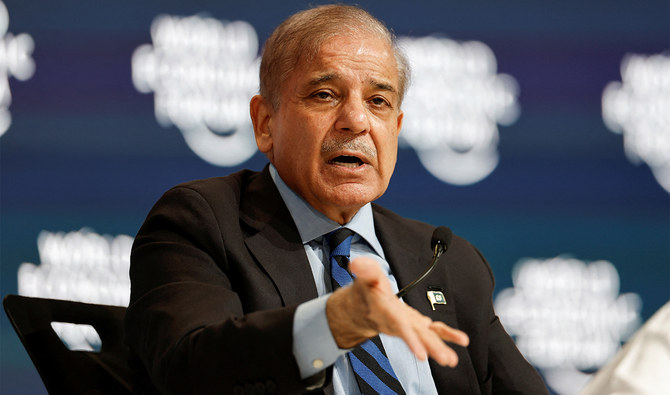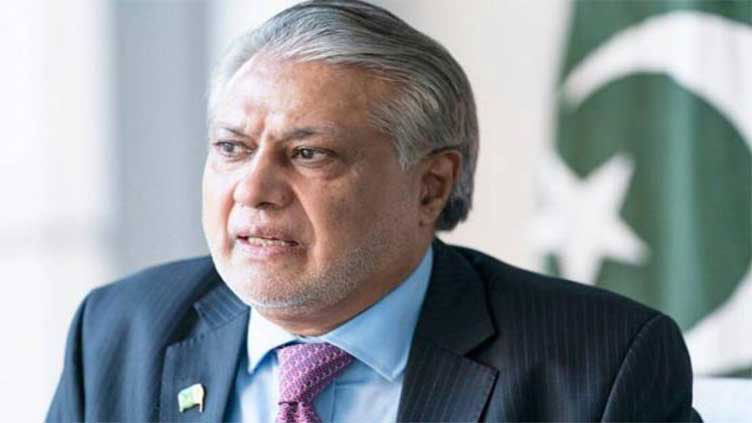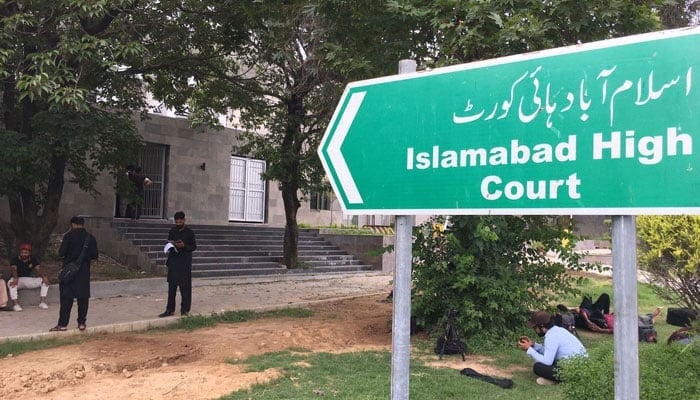Issuing notices to the Election Commission of Pakistan (ECP) for dragging feet on polls in Punjab, the Supreme Court of Pakistan Monday sought guarantees from the government and Pakistan Tehreek-e-Insaf (PTI) to bury the hatchet for free, fair, and transparent elections.
These developments came to the fore during the hearing of the plea regarding the date for general elections in Punjab and Khyber Pakhtunkhwa today (Monday).
A five-member larger bench, headed by Chief Justice of Pakistan (CJP) Umar Ata Bandial, heard the plea. The court also issued notices to governors of two provinces through the chief secretary.
“The court only needs assurance from both sides. The elections should be peaceful, transparent, and fair. If the government and PTI want elections, they have to give assurances,” Chief Justice Umar Ata Bandial said.
He added the parties would decide what those assurances would be like not the court.
“The parties should evaluate what is and what isn’t good for the public. Pakistan’s Constitution was not made for only setting up or toppling the governments,” he remarked suggesting it was more than that.
The SC’s top judge said that the Constitution was interpreted while keeping the life and happiness of people in mind.
“The current situation is alarming. Elections can only be held when the conditions are favourable,” he said and insisted that one could not run away from the facts.
The chief justice maintained that the country’s atmosphere had turned poisonous due to political intolerance. “The present political situation is terrible. Politicians are at each other’s throats,” he said.
Justice Bandial asked both the government and the Imran Khan-led party to decide what is best for Pakistan.
Sharing his remarks regarding the ECP, the top judge said that it was merely an institution. “The election commission requires facilitation and support for [conducting] polls.”
Apart from sending notices to all parties mentioned in the PTI’s plea, the apex court has also sent a notice to the governors of both provinces through chief secretaries.
The chief justice remarked that polls were essential for the functioning of the country’s governance system. “The election process should be transparent and peaceful. Article 218 calls for transparency of elections.”
Justice Bandial also questioned the performance of leaders in the country. “What have our leaders done so far?”
PTI’s counsel Barrister Ali Zafar, during his arguments, said that the objective of the caretaker government was to hold elections within 90 days. “The polls cannot be delayed for five months after the deadline.”
Apart from the CJP, the bench included Justice Ijaz ul Ahsan, Justice Munib Akhtar, Justice Amin-Ud-Din Khan and Justice Jamal Khan Mandokhail.
The PTI moved the apex court following the ECP decision to postpone the Punjab polls from April 30 to October 8 after financial and security authorities expressed their inability to support the electoral process.
In light of the Supreme Court’s split ruling last month, President Arif Alvi announced the date for the Punjab polls after consulting with the ECP.
Weighing in, Justice Ijazul Hassan said the ECP first said it was unable to fix a date for elections and later it postponed the date (given by the president) in total contradiction to its earlier position.
Justice Munib Akhtar said the Supreme Court’s decision was undersigned by all five judges. “It is not like that there are two Supreme Court decisions. Dissenting notes in judgements are not out of ordinary.”
Meanwhile, the additional attorney-general of Pakistan requested the court to adjourn the case for two to three days. However, the request was rejected by the court.
The additional attorney-general said that attorney-general Barrister Shehzad Elahi had resigned from the post. He pleaded with the court to adjourn the case until the appointment of a new attorney-general.
Responding to this, the Chief Justice said that the nominated attorney-general had visited him earlier today and would join by tomorrow.
Justice Bandial also spoke about the ECP seeking Article 254’s support for postponing the elections. “Can Article 254 be invoked in such a scenario? The Article 254 does not allow violation of the Constitution,” he remarked.
The top judge added that the court was determined to “dispose of this case as soon as possible”.
“The Election Commission should answer the questions raised in PTI’s petition,” he said while addressing the electoral authority.
Following the ECP’s announcement, Khyber Pakhtunkhwa Governor Haji Ghulam Ali also urged the electoral body to also hold the general elections on the same date (October 8) as the Punjab polls given the growing security threats from terror groups operating from the Pakistan-Afghanistan border regions.
Hearing
At the outset of the hearing, PTI’s lawyer Barrister Ali Zafar said that contempt of court has been committed thrice.
“When was the election schedule issued?” questioned CJP Bandial.
The PTI’s counsel replied that the schedule was issued on March 8. “The Election Commission did not have the authority to give a date for the elections,” he added.
Barrister Zafar said that the KP governor failed to give a date for the polls in the province despite the Supreme Court’s orders.
He added that the president, after consultation with the ECP, gave April 30 as the date for polls.
Barrister Zafar said that the apex court had ordered the ECP to fix the earliest date for elections after the completion of the 90-day period.
“Fixing a date for the polls far later after the 90-day deadline was also contempt of court,” he said, adding that the ECP has either changed or suspended the Constitution.
The Ministry of Interior and Defence refused to provide security personnel, he added.
Zafar said that the Constitution does not allow the postponement of elections on the basis of the administration’s non-cooperation.
“What guarantee is there that the situation will be better in October?” he questioned,
“What do you want from Supreme Court?” Justice Mandokhail asked the PTI lawyer.
At this, the PTI’s counsel said that the top court should ensure the implementation of the Constitution and its order.
Justice Mandokhail remarked it was the high court’s job to ensure the implementation of the orders.
“Elections will never be held if the reason for lack of funds is accepted,” said Zafar, adding that the matter was just not confined to the execution of the court orders.
“One high court cannot hear the matter of elections in two provinces,” said Barrister Zafar.
He added that the Supreme Court had announced its decision using its authority, which still prevailed.
“ECP’s decision became a hurdle in the way of the Supreme Court ruling.”
The PTI’s counsel said that only Supreme Court could decide better whether the orders were violated or not. “It is a matter of fundamental rights of the people of Punjab and Khyber Pakhtunkhwa,” he added.
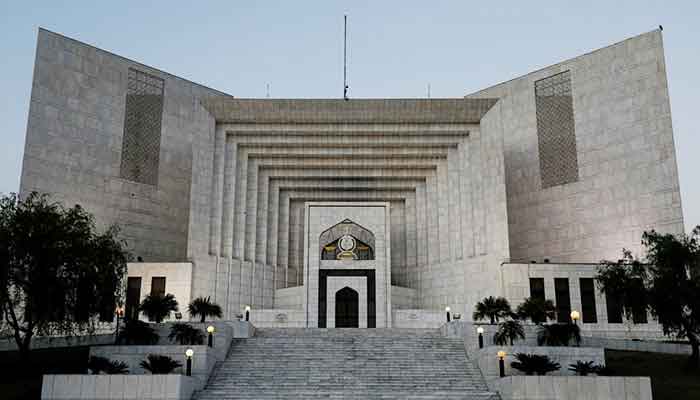

 Latest News4 hours ago
Latest News4 hours ago
 Latest News3 hours ago
Latest News3 hours ago
 Latest News5 hours ago
Latest News5 hours ago
 Business4 hours ago
Business4 hours ago
 Latest News5 hours ago
Latest News5 hours ago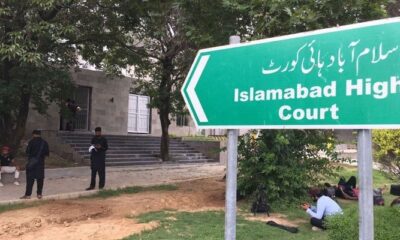
 Latest News4 hours ago
Latest News4 hours ago
 Latest News4 hours ago
Latest News4 hours ago
 Latest News4 hours ago
Latest News4 hours ago
